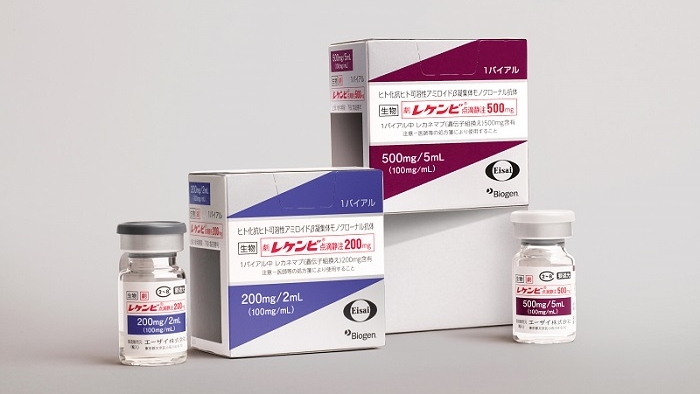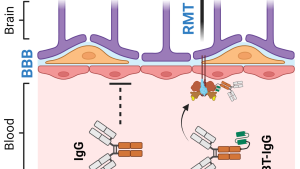
Alzheimer’s antibody Lecanemab launched in the EU
Swedish BioArctic AB’s partner Eisai Pharma has started the European roll-out of their Alzheimer’s antibody lecanemab in Austria that will be followed by the German launch on September 1, 2025.
Lecanemab received the European Commission (EC) approval in April 2025 as the first therapy that preferentially binds to soluble Aβ protofibrils, clearing them via microglia-mediated phagocytosis and reducing further aggregation into fibrillar plaques. The IgG1 humanised antibody is indicated for the treatment of adult patients with a clinical diagnosis of mild cognitive impairment (MCI) and mild dementia due to early AD in apolipoprotein E ε4 (ApoE ε4[1]) non-carriers or heterozygotes with confirmed amyloid pathology. Germany and Austria will mark the first launches in the EU. In the US, Lecanemab got FDA accelared approval in January 2023 and full market authorization in July 2023. Australia rejected registration due to safety concerns as lecanemab induced ARIA-E and H, cerebral oedema/effusion or microhemorrhagues, in 9% and 13%% of patients in the pivotal CLARITY-AD trial, respectively.
In the Clarity AD clinical trial, the primary endpoint was the global cognitive and functional scale, Clinical Dementia Rating – Sum of Boxes (CDR-SB).i Treatment with lecanemab (n=757), in the EU indicated population (ApoE ε4 non-carriers or heterozygotes, measured by controlled-based multiple imputation]), reduced clinical decline on CDR-SB by 31% at 18
Lecanemab was originally developed by BioArctic based on the work of Professor Lars Lannfelt and his discovery of the Arctic mutation in Alzheimer’s disease. While. BioArctic has the right to commercialise the medicine in the Nordic region, Eisai holds the right for commercialisation in the rest of the world.
Eli Lilly got FDA market approval of the competitor drug donanemab in July 2024 in the US and got EMA recommendation for conditional EU approval in July 2025 that targets N-terminal pyroglutamate-modified Aβ (pGlu-Aβ) species within amyloid plaques. As the risk for ARIA-E and -H is higher than with lecanemab, homozygotous carriers are excluded from treatment. Analysts estimate peak revenues reaching US $9.9 billion by 2034 for Leqembi and US $6.4 billion by 2032 for Donanemab


 BioArctic AB
BioArctic AB AlzeCure Pharma AB
AlzeCure Pharma AB Image by storyset on Freepik
Image by storyset on Freepik